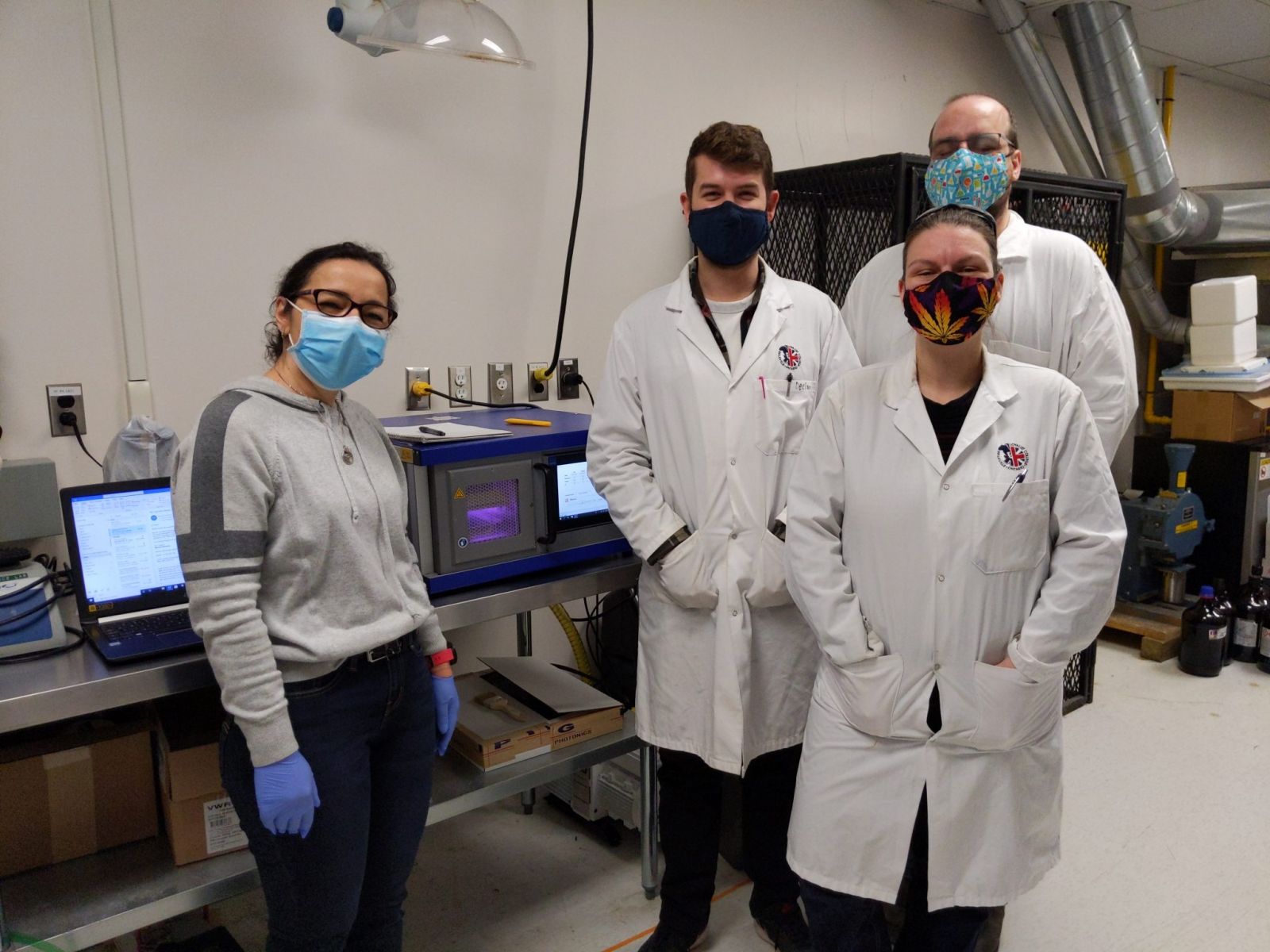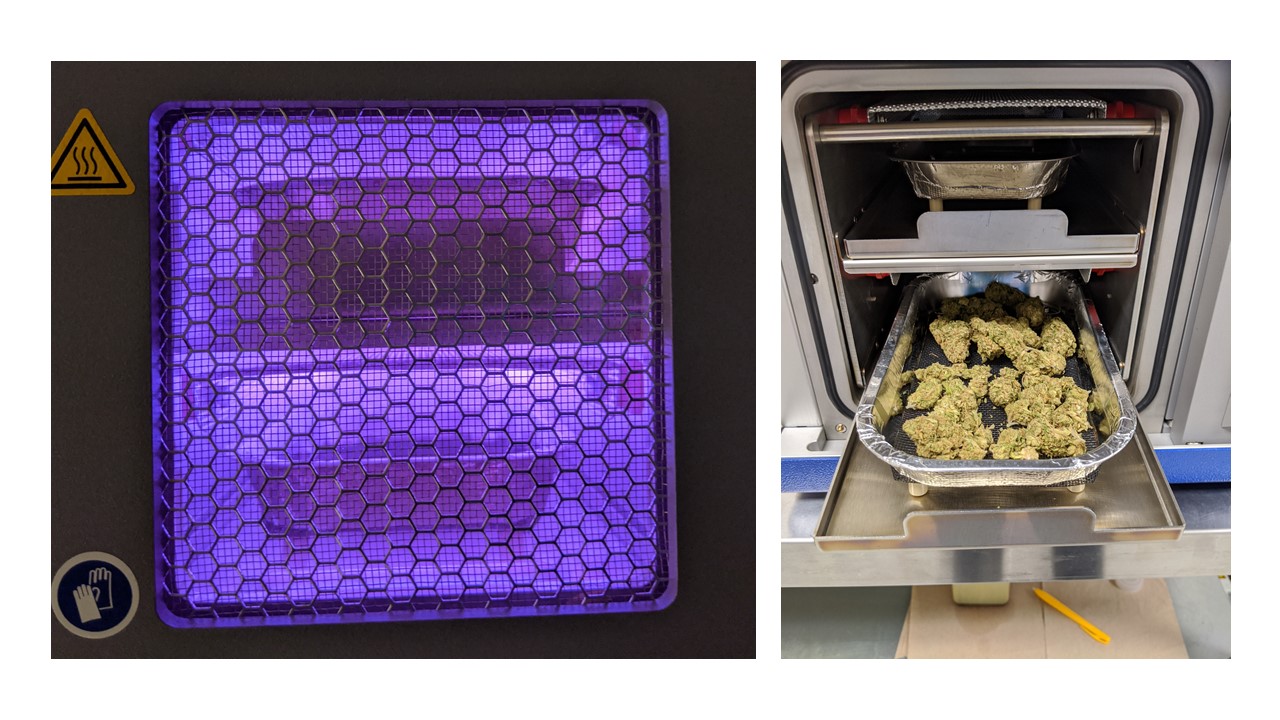Originally published by Jessica Foley at the Kingstonist on April 27, 2021.

In 2011, Florina Truica was faced with a difficult decision: Follow her employer to Georgia, or lose her job but continue to raise her family here in Kingston.
Truica, born and raised in Romania, came to Kingston in 2008 after completing her PhD and post-doctoral studies at Ecole Polytechnique of Montreal. She accepted a research scientist position at Novelis Global Research Center and moved her family from Montreal to Kingston when her son was three years old.
“When Novelis moved its Research Centre to Atlanta, GA, in 2011, I had a tough decision to make: to accept the job offer in Atlanta or to stay,” Truica shared. “On one hand, I loved my job and working with the Novelis people, but on the other, my family was well adjusted and living a happy life in Kingston. I agonized for weeks over the decision, it felt like it was career-over-family type of choice, but in the end, I decided to stay in Kingston, because my family and their happiness is the only thing truly worth something to me!”
Truica said her life became more relaxed after they moved here from Montreal. “With less commute times and lower costs of living, we had a better work-life balance. Another aspect that we’ve loved in Kingston is the French community, and the access to French education for my son. Born in Montreal and 3 years old at the time of the move, he was already speaking fluently French, English and Romanian. We wanted for him to keep his language proficiency, especially in French, and Kingston and the French community here offered that opportunity,” she said.
“Fast forward a few more years, and after losing yet another scientist job, this time due to company financial problems, I started my own technology company, to do the work I know and love best: commercial R&D to create new products and technologies.”
The project that eventually led to the creation of Cold Plasma Group (CPG) began in 2017 with a friendly conversation with Dr. Luc C. Duchesne, an accomplished scientist and well-respected cannabis industry executive, Truica shared with Kingstonist. He discussed with Truica the challenges that Licensed Producers face regarding cannabis microbial contamination, and the fact that many sterilization methods, such as autoclaving, irradiation with gamma rays or with ultraviolet radiation, can cause harm to the medical compounds in cannabis, namely cannabinoids and terpenes.
“Dr. Duchesne was searching for an alternative, which led me to the idea that a cold plasma process can be developed specifically for the purpose of sterilizing cannabis flowers without damaging their therapeutic properties,” said Tricia. “Following successful experimental trials in 2018, and due diligence on the business opportunity, CPG was created in early 2019 to bring this technology to market. Since then, we have filed for an international patent and completed the R&D work to achieve the technical proof-of-concept, to scale-up the process, and to implement the technology on custom-made industrial machines.”
Medicinal cannabis is currently accepted in many countries and is being used as a therapy to ease pain, chemotherapy-induced nausea and anorexia in cancer and HIV-1 patients. However, as with many agricultural crops, various microorganisms can be carried on its leaves and flowers.
“European and American pharmacopeias for herbal medicines specify the safe level (count) of microbes that cannabis flowers can contain,” she continued. “In some cases, this count is as low as 100 CFU (colony forming units) per gram, which is nearly 1,000 times less than what is on naturally contaminated cannabis. It is impossible to have a zero count for microbes on cannabis, as some, like Aspergillus, a common type of mold, is omnipresent indoors and outdoors.”
Cold Plasma Group has developed an innovative technology using non-thermal plasma treatments that could change the existing sterilization industry, Truica said.
“Our technology and equipment effectively sterilize cannabis flowers without side-effects to their quality, or therapeutic properties. However, our technology has a broader scope; for example, it can be used to safely sterilize single-use and disposable PPE (such as N95 respirators) for repeated re-use, eliminating waste and securing supply chain. It can also be used to remove pesticides, to sterilize, or to stimulate the germination of seeds increasing yields, and shortening harvest times.”

Truica explained the cold plasma sterilization method. “A plasma looks like a luminous, activated gas cloud, but at the microscopic level, the gas molecules and atoms are broken into fragments. There are many species present in a plasma, including charged particles (electrons and ions), photons (light), and radicals, all having enough energy to initiate chemical reactions,” she said. “Some radicals, like the oxygen containing radicals, are species of particular interest for disinfection; they oxidize the membranes or protective shells of microbes thereby creating microscopic holes and defects, which disrupt the usual exchange of substances occurring between the microbe and its environment (the equivalent of breathing and eating for humans), leading to their death.”
Truica said she was and still is inspired by many local examples of successful technology companies, such as IPG Photonics Canada (former Laser Depth Dynamics), Transformix Engineering, Eastern Fluid Power Inc., Kingston Aluminum Technology Inc., and others.
“I’ve started working on my dream to build a successful technology company offering eco-friendly products and technologies,” she said. “What motivates me the most is to help create a positive impact for the environment, but also for the community in Kingston, the latter by hopefully contributing to the growth of the local economy, and by offering meaningful jobs for scientists and engineers looking to put their creativity, passion and knowledge to good use.”
Cold Plasma Group has been a participant in the Queen’s Startup Runway Incubation Program from the beginning. Through this program, Truica said CPG was able to access many great resources, from Queen’s Partnerships and Innovation (OPI), Launch Lab, the Southeastern Ontario Angel Network, and St. Lawrence College.
CPG is also participating in the WE-CAN project, an OPI initiative supported by the Government of Canada through the Federal Economic Development Agency for Southern Ontario. The mission of this program is to empower existing and aspiring women-identifying entrepreneurs by providing tools, resources, expert mentors, networks, and by building a community, to expand existing businesses and to launch new ventures. Access to all these local resources and the entrepreneur community has made it possible for CPG to achieve many important milestones on the path to product development and commercialization, overcoming challenges of limited resources and the difficult times of the pandemic, she shared.
Cold Plasma Group has six full- and part-time employees now. “Due to the nature of our business, most people working for Cold Plasma are not from Kingston,” Truica said. “We hope to change that in the near future as Cold Plasma Group grows and additional scientists or engineers are needed. Right now, we are operating virtually most of the time, but we rent physical space for our R&D work in the Applied Research Centre for Natural Products and Medical Cannabis (ARC) at Loyalist College in Belleville.”
“We needed space for our R&D lab, and a cannabis testing license from Health Canada to be allowed to handle cannabis, which was necessary for our technology development and scale-up work,” she continued. “When we were struggling with logistics, Launch Lab from Kingston came to the rescue, by helping to get us in touch with the ARC centre in Belleville, which has a cannabis license, and specializes in working with start-ups to help them develop, scale-up and commercialize their ideas, products, and processes.”
Besides their sterilization process, Cold Plasma Group offers customized and ready-to-use plasma solutions and user-friendly machines to their customers.
“We also seek partnerships whenever possible, as working with companies on specific advanced manufacturing issues allows us to develop better solutions and equipment.”
Learn more about Cold Plasma Group on their website.
